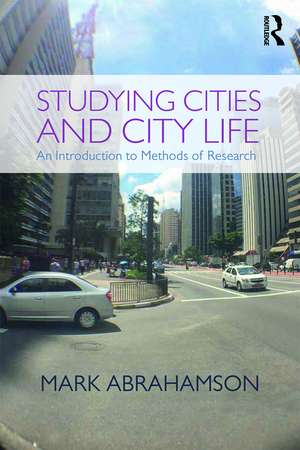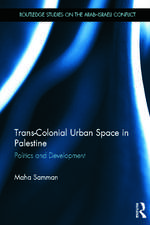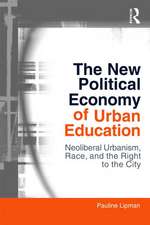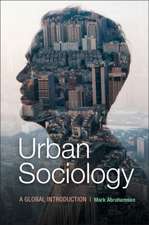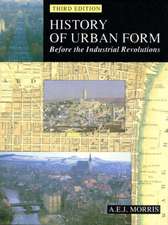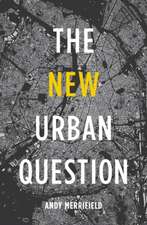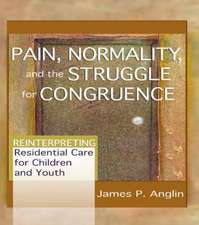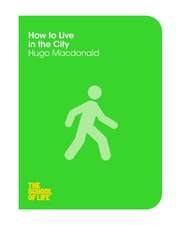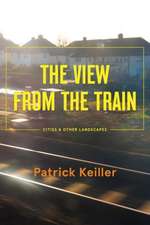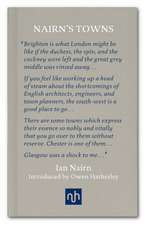Studying Cities and City Life: An Introduction to Methods of Research
Autor Mark Abrahamsonen Limba Engleză Paperback – 5 dec 2016
A textbook designed to provide an introduction to the major methods of obtaining data to use in analyzing cities and social life in cities. Major chapters focus upon best practices in: field studies (participant observation), natural experiments and quasi-experiments, surveys employing probability and non-probability samples, and secondary analyses of previously published documents. A separate chapter examines a full range of questionnaires and interviews.
Each chapter includes discussion of several case studies: recent published research employing the method being discussed. This discussion highlights the issues and choices made by investigators in actual studies conducted in cities throughout the world.
This unique book is designed for use in research methods courses that primarily enroll students majoring in urban sociology, urban studies, urban geography, urban planning, and related areas.
| Toate formatele și edițiile | Preț | Express |
|---|---|---|
| Paperback (1) | 336.43 lei 43-57 zile | |
| Taylor & Francis – 5 dec 2016 | 336.43 lei 43-57 zile | |
| Hardback (1) | 1025.46 lei 43-57 zile | |
| Taylor & Francis – 6 dec 2016 | 1025.46 lei 43-57 zile |
Preț: 336.43 lei
Preț vechi: 385.81 lei
-13% Nou
64.37€ • 67.39$ • 53.27£
Carte tipărită la comandă
Livrare economică 07-21 aprilie
Specificații
ISBN-10: 0415738016
Pagini: 256
Ilustrații: 12
Dimensiuni: 156 x 234 x 20 mm
Greutate: 0.36 kg
Ediția:1
Editura: Taylor & Francis
Colecția Routledge
Locul publicării:Oxford, United Kingdom
Public țintă
Postgraduate and UndergraduateCuprins
Part One: Initial Considerations
1.1. The Limitations Of Personal Experience
1.2. Scientific Research Methods
1.3. Theory and Research
1.4. Research Designs: An Overview And Preview
Part Two: Research Ethics
1.5. Ethical Constraints
1.6. Subject Protections
1.7. Neutrality
18. Giving Back to the Community
2. Ethnographic Field Studies
Part One: Historical and Theoretical Background
2.1. Historical Field Studies
2.2. The Place of Theory
2.3. Part Two: Conducting Field Studies
2.4. The Participant-Observer Continuum
2.5. Gaining Access
2.6. Sampling
2.7. Writing Field Notes
2.8. Terminating A Field Study
2.9. Assessing Data Quality
Analyzing Ethnographic Data
3. Experimental Design
3.1. Experiments Introduced
3.2. Contrasting Experiments and Ethnographic Studies
3.3. Experimentation In Social Science
3.4. Causal Inference
3.5. Experimental Designs
3.6. Assigning Subjects To Experimental Conditions
3.7. Internal And External Validity
4. Sample Surveys
4.1. History of Urban Sampling Studies
4.2. Sampling: Basic Terms
4.3. Sample Accuracy
4.4. Types Of Samples
4.5. Reaching Respondents
4.6. Nonresponse Bias
5. Obtaining Data, Part One
5.1. Interviews
5.2. Questionnaires
5.3. Observation
6. Obtaining Data, Part Two
6.1. Multi-Methods
6.2. Mixed Methods
6.3. Secondary Sources
6.4. Special Analyses
7. Measurement, Reliability And Validity
7.1. Concepts And Indicators
7.2. Reliability
7.3. Validity
8. The Research Report
8.1. Section Headings
8.2. Writing Style
Notă biografică
Descriere
A textbook designed to provide an introduction to the major methods of obtaining data to use in analyzing cities and social life in cities. Major chapters focus upon best practices in: field studies (participant observation), natural experiments and quasi-experiments, surveys employing probability and non-probability samples, and secondary analyses of previously published documents. A separate chapter examines a full range of questionnaires and interviews.
Each chapter includes discussion of several case studies: recent published research employing the method being discussed. This discussion highlights the issues and choices made by investigators in actual studies conducted in cities throughout the world.
This unique book is designed for use in research methods courses that primarily enroll students majoring in urban sociology, urban studies, urban geography, urban planning, and related areas.
